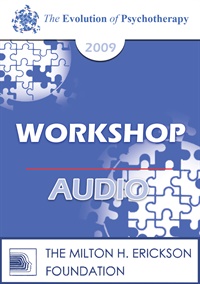
- Average Rating:
- Not yet rated
- Topic Areas:
- Sex and Sexuality | Workshops | Deception | Addiction | Betrayal | Couples Therapy
- Categories:
- Evolution of Psychotherapy | Evolution of Psychotherapy 2009
- Faculty:
- Claudia Black, PhD
- Duration:
- 2 Hours 41 Minutes
- Format:
- Audio Only
- Original Program Date:
- Dec 09, 2009
- Short Description:
- Many women are in a couple ship riddled with deception, lies, and false perceptions as a result of her partner’s compulsive sexual acting out. Dr. Black will describe the dynamics of co-sex addiction and the role of family of origin issues in thispartnership. She will address early stabilization issues as sell as treatment and recovery issues.
- Price:
- $15.00 - Base Price
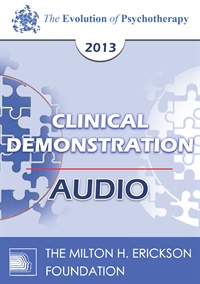
- Average Rating:
- Not yet rated
- Topic Areas:
- Clinical Demonstrations | Acceptance and Commitment Therapy (ACT) | Addiction | Depression | Psychotherapy
- Categories:
- Evolution of Psychotherapy | Evolution of Psychotherapy 2013
- Faculty:
- Steven Hayes, PhD
- Duration:
- 1 Hour
- Format:
- Audio Only
- Original Program Date:
- Dec 14, 2013
- Short Description:
- This case of complicated grieving in a young adult recovering from depression and a substance use disorder shows how perspective taking can be used to foster greater self-compassion in Acceptance and Commitment Therapy (ACT).
- Price:
- $15.00 - Base Price
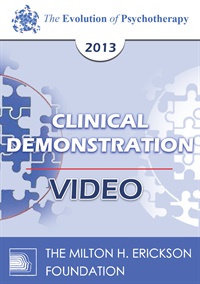
- Average Rating:
- Not yet rated
- Topic Areas:
- Clinical Demonstrations | Addiction | Depression | Suicide | Storytelling | Constructive Narrative
- Categories:
- Evolution of Psychotherapy | Evolution of Psychotherapy 2013
- Faculty:
- Donald Meichenbaum, PhD
- Course Levels:
- Master Degree or Higher in Health-Related Field
- Duration:
- 1:00:02
- Format:
- Audio and Video
- Original Program Date:
- Dec 14, 2013
- Short Description:
- In this video presentation, Dr. Meichenbaum works with a young woman who is depressed and who has attempted suicide seven times. She has undergone multiple traumas in her life, including rape, suicide by her mother, substance abuse. The case illustrates ways to conduct risk assessment and how to use a constructive narrative treatment approach to identify and bolster the client’s strengths and resilience.
- Price:
-
Sale is $29.00
price reduced from Base Price - $59.00
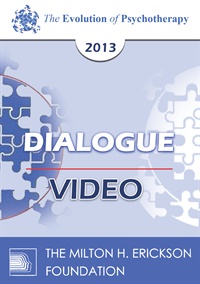
- Average Rating:
- Not yet rated
- Topic Areas:
- Dialogues | Addiction | Psychotherapy
- Categories:
- Evolution of Psychotherapy | Evolution of Psychotherapy 2013
- Faculty:
- Daniel Amen, MD | Claudia Black, PhD
- Course Levels:
- Master Degree or Higher in Health-Related Field
- Duration:
- 1:00:09
- Format:
- Audio and Video
- Original Program Date:
- Dec 13, 2013
- Short Description:
- EP13 Dialogue 05 – Addiction – Daniel Amen, MD and Claudia Black, PhD Moderator: Michael Munion, MA Educational Objectives: Given a topic, describe the differing approaches to psychotherapy, and identify the strengths and weaknesses of each approach.
- Price:
-
Sale is $29.00
price reduced from Base Price - $59.00
Tags: Addiction Psychotherapy
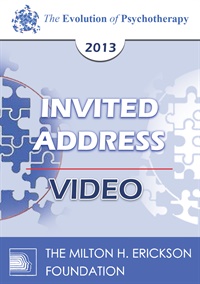
- Average Rating:
- Not yet rated
- Topic Areas:
- Addiction | Trauma | Family Therapy | Invited Addresses | Psychotherapy
- Categories:
- Evolution of Psychotherapy | Evolution of Psychotherapy 2013
- Faculty:
- Claudia Black, PhD
- Course Levels:
- Master Degree or Higher in Health-Related Field
- Duration:
- 1:02:07
- Format:
- Audio and Video
- Original Program Date:
- Dec 14, 2013
- Short Description:
- When people think of trauma they often think of acute dramatic situations, such as a natural disaster or acts of terrorism. Yet, the majority of people who experience trauma experience a more subtle and chronic form that exists within their own family. Beginning with a genogram, Claudia Black, Ph.D., will give a portrait of addiction in the family, offering an overlay of how adverse child experiences, emotional abandonment and blatant violence are all aspects of the trauma.
- Price:
-
Sale is $29.00
price reduced from Base Price - $59.00
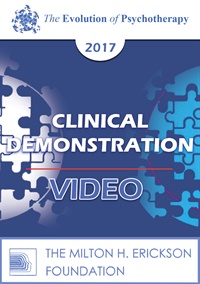
EP17 Clinical Demonstration 10 - Learn to Read Brain Scans: 50 cases in 60 Minutes - Daniel Amen, MD
Credit available - Click Here for more information
- Average Rating:
- Not yet rated
- Topic Areas:
- Clinical Demonstrations | Neuroscience | Psychotherapy | Addiction | Anxiety | Attention Deficit Disorder (ADD) | Depression | Schizophrenia
- Bundle:
- EP17 Video Stream Build a Bundle
- Categories:
- Evolution of Psychotherapy | Evolution of Psychotherapy 2017 | Online Continuing Education
- Faculty:
- Daniel Amen, MD
- Course Levels:
- Master Degree or Higher in Health-Related Field
- Duration:
- 58:58
- Format:
- Audio and Video
- Original Program Date:
- Dec 15, 2017
- Short Description:
- Based on the world's largest database of brain SPECT (single photon emission computed tomography) scans, Dr. Amen will teach attendees about brain SPECT imaging and then show 50 cases in 60 minutes, including cases of depression, anxiety, attention deficit hyperactivity disorder, posttraumatic stress disorder, schizophrenia, traumatic brain injury, addiction, and dementia.
- Price:
-
Sale is $29.00
price reduced from Base Price - $59.00
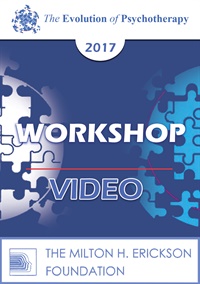
Credit available - Click Here for more information
- Average Rating:
- Not yet rated
- Topic Areas:
- Workshops | Post-Traumatic Stress Disorder (PTSD) | Trauma | Storytelling | Constructive Narrative | Addiction | Abuse | Borderline | Psychotherapy
- Bundle:
- Learning Track - EP17 Trauma Stream | EP17 Video Stream Build a Bundle
- Categories:
- Evolution of Psychotherapy | Evolution of Psychotherapy 2017 | Evolution of Psychotherapy Trauma Learning Track | Online Continuing Education
- Faculty:
- Donald Meichenbaum, PhD
- Course Levels:
- Master Degree or Higher in Health-Related Field
- Duration:
- 2:48:12
- Format:
- Audio and Video
- Original Program Date:
- Dec 13, 2017
- Short Description:
- Ways to implement the core tasks of psychotherapy with patients who evidence PTSD and co-morbid disorders of prolong and complicated grief, Substance Abuse Disorders and Borderline Personality Disorders. A case conceptualization model of risk and protective factors and incorporates a constructive narrator perspective will be presented.
- Price:
-
Sale is $29.00
price reduced from Base Price - $59.00
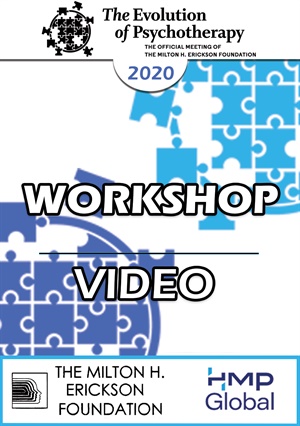
- Average Rating:
- Not yet rated
- Topic Areas:
- Couples Therapy | Workshops | Addiction
- Categories:
- Evolution of Psychotherapy | Evolution of Psychotherapy 2020
- Faculty:
- John Gottman, PhD | Julie Gottman, PhD | Robert Navarra, PsyD
- Course Levels:
- Master Degree or Higher in Health-Related Field
- Duration:
- 2 hours
- Format:
- Audio and Video
- Original Program Date:
- Dec 13, 2020
- Short Description:
- A relational approach to addiction treatment is the missing component in most contemporary addiction treatment models based on concerns that working with the couple system too soon increases the risk for relapse. It turns out there isn’t empirical support for this default assumption. Conversely, long-standing, and well-established research has consistently supported couple and family approaches in treating addictive disorders, defining relationship stability as the greatest predictor of long-term sobriety and recovery.
- Price:
-
Sale is $29.00
price reduced from Base Price - $59.00
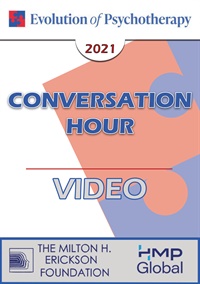
- Average Rating:
- Not yet rated
- Topic Areas:
- Addiction | Conversation Hours
- Categories:
- Evolution of Psychotherapy | Evolution of Psychotherapy 2021
- Faculty:
- Claudia Black, PhD
- Course Levels:
- Master Degree or Higher in Health-Related Field
- Duration:
- 1 hour
- Format:
- Audio and Video
- Original Program Date:
- Dec 04, 2021
- Short Description:
- The acronym ACA or ACoA has been a part of the therapy community for several decades now. As the pioneer in the framework for its meaning and influence in the recovery field , Claudia Black will discuss her history with the meaning and the value this terms offers the client. She will also offer a framework for healing the family of origin issues that often contribute to depression, anxiety, relationship conflict and addiction relapse.
- Price:
- $59.00 - Base Price
Tags: Addiction
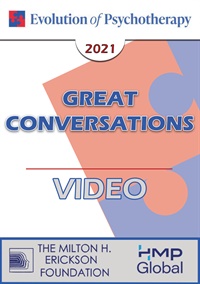
- Average Rating:
- Not yet rated
- Topic Areas:
- Addiction | Great Conversations
- Categories:
- Evolution of Psychotherapy | Evolution of Psychotherapy 2021
- Faculty:
- Jeffrey Zeig, PhD | Gabor Maté
- Course Levels:
- Master Degree or Higher in Health-Related Field
- Duration:
- 1 hour
- Format:
- Audio and Video
- Original Program Date:
- Dec 01, 2021
- Short Description:
- Great Conversation on the topic of Addiction from the 2021 Evolution of Psychotherapy Conference. Featuring Jeffrey Zeig and Gabor Maté.
- Price:
- $59.00 - Base Price
Please wait ...

